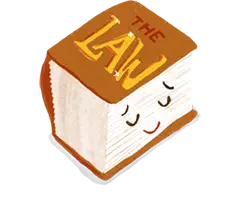Topic
Public transport
This page contains different parts of laws about Public transport, within the topic of Transport and travel.

Important laws about Public transport
Conservation Act 1987
Rules for land near railway lines that was once owned by the government
24K: Provisions applying in relation to land vested under New Zealand Railways Corporation Restructuring Act 1990
Conservation Act 1987
Walking near railway lines: what you can and can't do
24L: Public access rights
Telecommunications Act 2001
Rules for setting fair conditions when working on roads
119: Criteria for setting reasonable conditions
Telecommunications Act 2001
Removing trees or plants that endanger phone or internet lines in an emergency
132: Removal of trees, etc, in emergency
Telecommunications Act 2001
Building or fixing phone and internet lines on roads
135: Construction or repair of lines or wireless works on roads
Telecommunications Act 2001
Telling the council and others before you start work on a road
136: Notice requirement
Telecommunications Act 2001
Tell the road bosses, they tell the network operator about the rules
137: Network operator to be notified of conditions
Telecommunications Act 2001
Telling the network operator about your rules within 15 working days
138: Failure to notify conditions
Telecommunications Act 2001
Doing urgent work without waiting for permission first
139: Urgency
Telecommunications Act 2001
Network operators can appeal to the District Court about road rules they don't agree with.
141: Appeals by network operators to District Court
Telecommunications Act 2001
Putting Telephone Cabinets on Roads
142: Construction, etc, of telephone cabinets or other similar appliances
Telecommunications Act 2001
Tell the road boss before putting a phone box on the road
143: Network operator to be notified of conditions
More laws about Public transport
About this project
What is this project?
This project is an experiment to take difficult language, and make it easier to read and understand for everyone.
How do we do this?
What's our process for taking the law and turning it into plain language?
Why is the law written like it is?
Laws are often hard to read. They use a lot of words and language we don't usually use when we talk.
Should we use AI for this?
What are the good and bad sides of using AI?
Is this information the actual law?
We hope that this information will help people understand New Zealand laws. But we think that it's important you talk to someone who understands the law well if you have questions or are worried about something.
You can talk to Community Law or Citizen's Advice Bureau about your rights.
Remember that AI can make mistakes, and just reading the law isn't enough to understand how it could be used in court.
You can talk to Community Law or Citizen's Advice Bureau about your rights.
Remember that AI can make mistakes, and just reading the law isn't enough to understand how it could be used in court.




